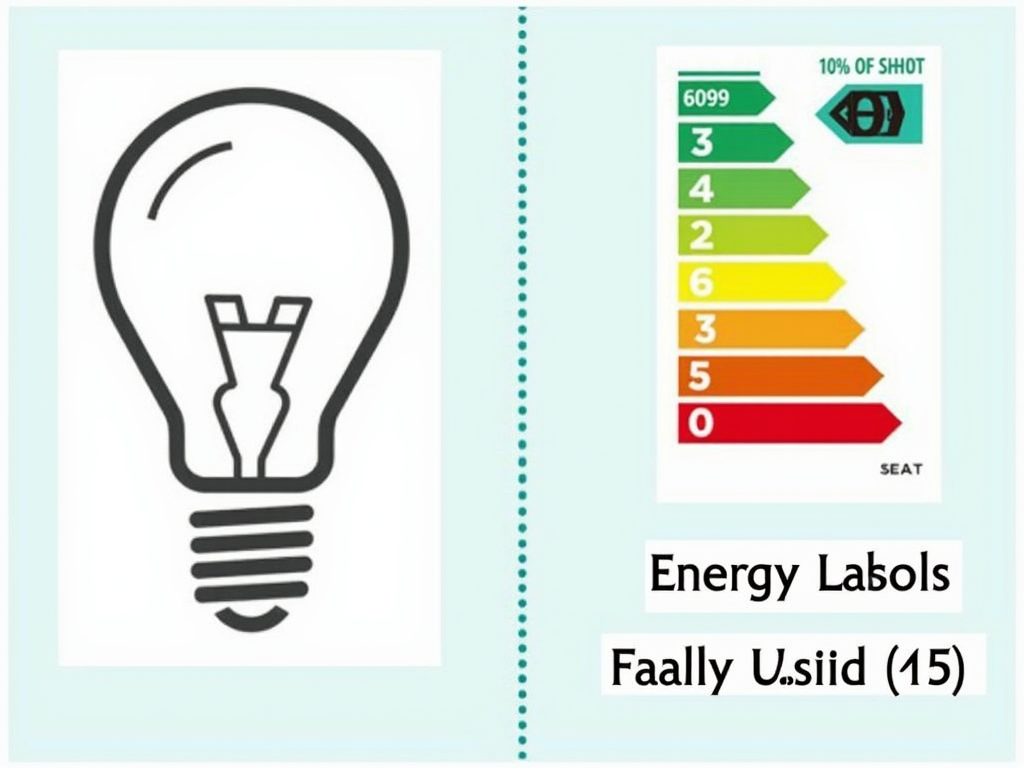Deciding between a 3-star and a 5-star refrigerator can significantly impact your energy consumption and budget. While 3-star refrigerators are typically more affordable, 5-star models bring superior energy efficiency and long-term savings on electric bills. This article delves into the differences between these two types of refrigerators, examining their energy ratings, features, pricing, and suitable applications to help you make the best choice for your home.
Understanding Energy Ratings

Energy ratings are essential metrics that indicate a refrigerator’s efficiency. The star rating system, which ranges from 1 to 5 stars, reflects how much energy the appliance will consume in a year. A 3-star model signifies moderate efficiency, while a 5-star option indicates high efficiency, dramatically reducing energy consumption over time. Here’s a brief overview of how these ratings can impact your decision:
- 3-Star Refrigerators: Generally consume more electricity than their 5-star counterparts and may lead to higher utility bills.
- 5-Star Refrigerators: Designed to minimize energy consumption, which translates to lower electricity costs and a more eco-friendly choice.
Beyond just the financial aspect, a higher star rating often leads to a reduced carbon footprint, making it a responsible choice for the environment. Opting for a 5-star refrigerator can yield significant savings and contribute to a greener future.
Features to Consider

When comparing 3-star and 5-star refrigerators, it’s crucial to evaluate the features that come along with each. Higher-rated models often have advanced features that contribute to their efficiency:
- Inverter Technology: 5-star refrigerators often come equipped with inverter compressors, which adjust their energy consumption according to the cooling demand. This results in lower energy usage.
- Smart Features: Many 5-star models include smart technology that allows you to monitor energy usage and control settings remotely.
- Better Insulation: Higher star-rated refrigerators are usually better insulated, minimizing energy loss and ensuring efficient cooling.
- Humidity Control: More advanced models provide features that allow for better humidity control, keeping fruits and vegetables fresher for longer.
- Warranty and Support: Often, 5-star appliances come with extended warranties and better customer support.
While 3-star models may still feature some of the above perks, they may not be as advanced, which could affect their longevity and efficiency.
Price is often a driving factor in the decision to purchase a refrigerator. Generally, 3-star refrigerators come with a lower upfront cost, making them appealing for budget-conscious consumers. However, the long-term expenses tied to energy consumption can offset these initial savings. When weighing cost, consider the following:
- Initial Cost: 3-star refrigerators are typically less expensive, which might fit better in short-term budgets.
- Operational Costs: A higher initial investment in a 5-star model can lead to significant savings over time through reduced electricity bills.
- Longevity: Higher star-rated models may have a longer lifespan due to better technology and materials, making them a smarter long-term investment.
Ultimately, it’s essential to consider not only the price tag but also the total cost of ownership over the years; a 5-star refrigerator might end up saving you money in the long run.
Which One is Right for You?
The choice between a 3-star and a 5-star refrigerator depends on your personal needs, lifestyle, and budget. If you have a strict budget and do not expect high usage patterns, a 3-star model might serve you well. However, if you are environmentally conscious or aim to lower your electrical expenses, investing in a 5-star refrigerator could be the more prudent choice. Here are some factors to consider in making your decision:
- Usage Frequency: How often do you use the refrigerator? Regular heavy usage may justify the investment in a 5-star model.
- Budget: Determine if you can afford the upfront cost of a 5-star unit versus ongoing costs with a 3-star model.
- Energy Efficiency: Are you looking to minimize your carbon footprint? Choosing a 5-star model may align with your values.
Ultimately, your choice will hinge on balancing immediate costs against future savings and environmental impact.
Conclusion
In conclusion, the decision between a 3-star and a 5-star refrigerator ultimately boils down to your individual needs, budget, and lifestyle choices. If upfront cost is your primary concern, a 3-star refrigerator may be an appropriate option, but it is vital to consider the longer-term implications of higher energy bills. Conversely, investing in a 5-star refrigerator can lead to substantial savings on your electricity costs and a reduced environmental impact. Assess your needs carefully and make an informed choice that suits your household the best.
Frequently Asked Questions
1. What is the difference in energy consumption between 3-star and 5-star refrigerators?
3-star refrigerators consume more energy compared to 5-star models, which are designed to be highly energy-efficient, thus lowering your electricity bills over time.
2. Are 5-star refrigerators significantly more expensive than 3-star options?
Yes, 5-star refrigerators generally come at a higher upfront cost. However, they can save you money in the long run due to their energy efficiency.
3. Do 3-star refrigerators last less time than 5-star models?
Not necessarily; longevity depends on brand and maintenance. However, 5-star refrigerators often feature superior materials and technology, which may enhance durability.
4. Can I find 5-star refrigerators in all sizes?
Yes, 5-star models are available in various sizes and configurations to fit different kitchen needs and layouts.
5. How can I determine the best refrigerator for my household?
Consider factors like your budget, energy consumption, usage patterns, and whether you prioritize initial costs or long-term savings when choosing a fridge.





